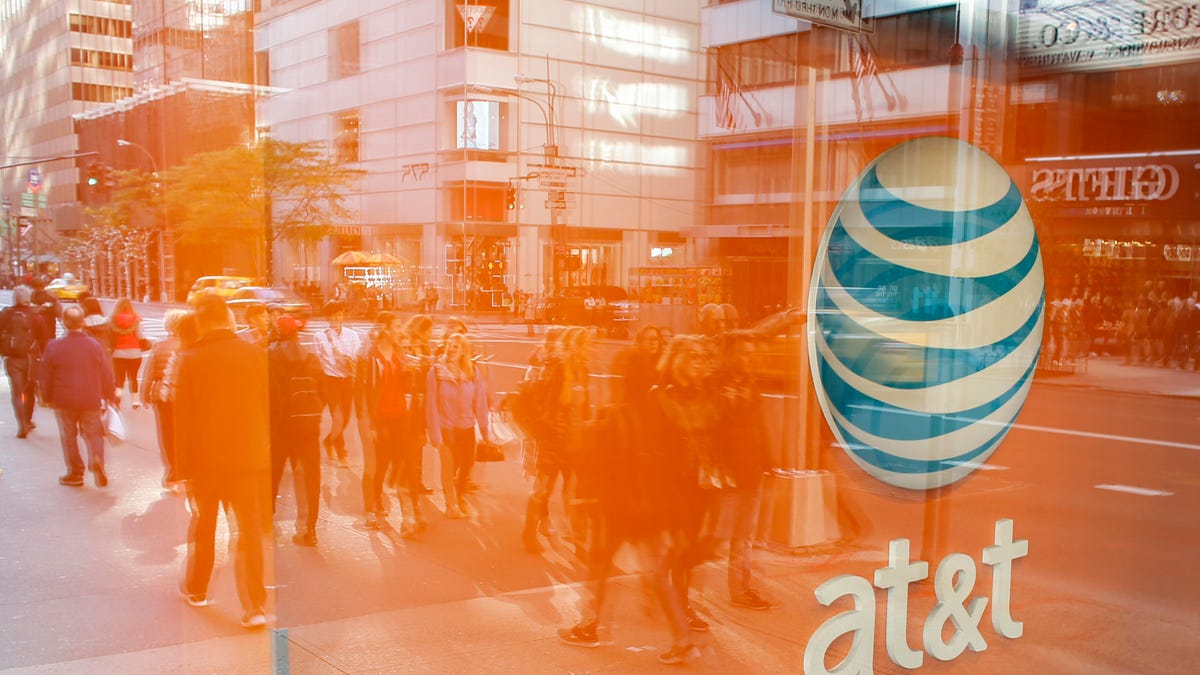DOJ says AT&T-Time Warner merger will raise pay-TV prices
In the trial to block AT&T’s $85 billion merger with Time Warner, the government argues in its opening statement that consumers will pay more for TV if the deal goes through.

Consumers can expect heftier bills for TV service if AT&T is allowed to buy Time Warner. That's according to a lawyer for the US Justice Department, who delivered opening remarks in Washington on Thursday during the federal trial to stop the $85 billion merger.
Long lines formed to get into the building where AT&T CEO Randall Stephenson, Time Warner CEO Jeff Bewkes and Justice Department antitrust chief Makan Delrahim came to hear the opening statements in what many experts say is one of the most important antitrust cases in years.
Time Warner CEO Jeff Bewkes arrives Thursday for opening statements in the antitrust trial seeking to block the merger of AT&T and Time Warner.
The Justice Department's main argument against the merger is that it will lead to higher prices for consumers and hurt competition in the pay-TV market. The government's lawyer said the merger could lead to consumers paying at least $400 million more for pay TV.
The Justice Department says the reason is that AT&T, which owns satellite TV provider DirecTV, would likely charge its cable competitors more to carry Time Warner channels, like TNT, which has rights to live sports coverage such as the NCAA basketball tournament, and HBO, which owns popular shows like "Game of Thrones."
"If the merger goes forward, consumers all across America will be worse off as a result," Justice Department lawyer Craig Conrath said, according to a report from The Wall Street Journal. Conrath also argued that AT&T would lessen competition and innovation by using content from Time Warner as a weapon to run competitors out of business.
"Time Warner would be a weapon for AT&T because AT&T's competitors need Time Warner," Conrath said, according to Reuters.
The lawyer defending AT&T and Time Warner in the lawsuit, Daniel Petrocelli, called the government's claims "preposterous." He said the Justice Department's thinking on competition was "fundamentally stuck in the past" and that its arguments were "divorced from reality," according to a report from Reuters.
He also sought to poke holes in the government's economic analysis and said the deal would actually lead to a 50 cent decrease in prices for pay TV subscribers.
"It is a case where there is only one just, clear-cut outcome," Petrocelli said, according to the Journal.
The attacks came on the first official day of one of the most closely watched US antitrust trials in years. The fate of the deal could have ripple effects on future agreements between internet service providers and media companies, as well as affect what streaming services look like in the future.
Antitrust experts say a win for the government could have a chilling effect on other so-called "vertical mergers," in which the companies merging don't directly compete against each other, but combined could exert market power over competitors.
The case will also play a role in how the streaming video market will shake out. A win for the government will likely mean more over-the-top streaming services, whereas a win for AT&T could result in streaming content being more tightly controlled by big pay-TV distributors, said one expert.
"When content is tied to distribution, like it would be in this case since AT&T owns DirecTV, the incentive is to keep content exclusive," said Ketan Jhaveri, former antitrust attorney for the Justice Department's Telecommunications Task Force and co-CEO of legal tech platform Bodhala.
Jhaveri argues that it was Time Warner CEO Jeff Bewkes who paved the way for Netflix's success by opening up its video catalog to the upstart video streaming company in its early days. By pushing Time Warner's TV Everywhere philosophy, Time Warner was able to go more directly to consumers rather than limiting its content to pay-TV services.
"When you're trying to protect a distribution asset like DirecTV, you're less likely to see this happen," he said.
AT&T will argue in this trial that this isn't the case, since the company has its own streaming service called DirecTV Now. It says it needs Time Warner to help it bulk up its original programming for this service. AT&T argues that this merger isn't about competing against traditional pay-TV services so much as it's about being able to compete with streaming providers, like Netflix, Amazon and Google's YouTube, which are investing in original content.
Still, Jhaveri warned that an AT&T victory in this case would mean millennials can kiss goodbye their password-sharing of HBO's popular apps, HBO Now and HBO Go.
He explained that Time Warner has largely looked the other way while people share credentials to access popular HBO shows from its streaming apps.
"When you're a content-only company, allowing that 22-year-old who can't afford the service to share his parents' password is seen as viral marketing," he said.
In a couple of years, that young adult is likely to become a paying customer, he argued. But it all changes when a company owns both the content and the distribution.
"When you're in the business of distributing content, you don't care about turning people into customers two years from now," he said. "If you mess with a telecom company, they're going to cut you off. That's just how that business works."
The courtroom drama is expected to play out over the next six to eight weeks. On Thursday, the government will call its first witness, an official with cable provider Cox Communications, a company that competes against DirecTV and would be affected by price hikes for Time Warner content.
iHate: CNET looks at how intolerance is taking over the internet.
Tech Enabled: CNET chronicles tech's role in providing new kinds of accessibility.

